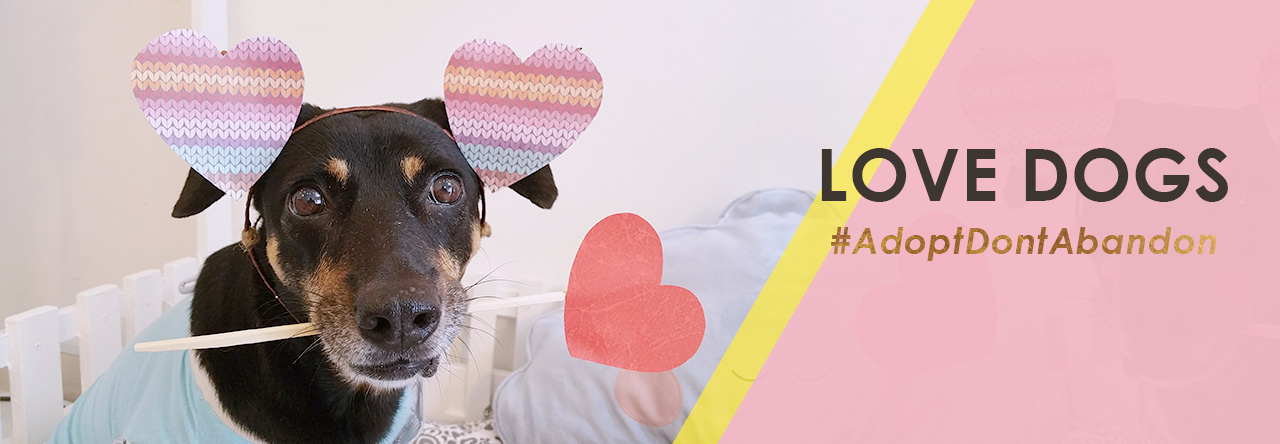Yesterday on our regular morning walk, Donna took every opportunity to nibble on the grass rather than do her business. I did my best to stop her, and added carrot to her breakfast when we got home. Because honestly Donna, I’d rather you nibble on human-grade carrot than nibble on grass outside.
By mid-day, it was obvious that Donna was coughing, and the awful choking, I’ve-got-something-in-my-throat-that-I’m-trying-to-vomit-out sound sounded suspiciously similar to the sounds she made when she had kennel cough about more than a month ago. So I kept her quiet, and pampered her with little teaspoons of honey, hoping to sooth her throat. Honey is supposed to have anti-bacteria and anti-viral properties, so it is a natural remedy for kennel cough. And one can administer 1/2 to 1 teaspoon of the stuff 3 to 4 times a day. We wanted to monitor her a bit and see if the cough persists before sending her to see the vet. Ok, I was hoping that it was not kennel cough after all.
The next day, Donna was at times lethargic, and other times more rambunctious than usual. I attributed it to her being under the weather. The honey seemed to help quieten the cough, although the effect did not last long and by late afternoon, she was back to her coughs again. She was also scratching her eyes, nose and the side of her face a lot but her face looked fine.
We fed her new better quality kibble (just delivered the night before yesterday), took her down for her pee break then left her at home while we grab some dinner outside with our cousin and her boyfriend who were visiting.
When we returned, we found Donna in a state of high arousal. There was saliva on the shoe bench and her paw prints on the coffee table, and it was obvious that she had been on the sofa, something that she only does when she goes into over-excited mode and forgets all the rules and limitations we have set for her; or when she thinks we had turned in for the night and will not shoo her off it. There were globs of saliva and phlegm on the floor. And in her excitement, she had also ran to pee on the peepad set out for her, and poop on the common corridor, rather than on the newspapers where she should.
We ignored her and went about cleaning up. When she calmed down, I tried to feed her another teaspoon of honey, which she normally licks clean. This time, she refused it. It was when I looked closer at her than I noticed that her muzzle looked swollen and that there were three bumps on her nose, sort of like mosquito bite bumps. The next time I looked the bumps seemed to have merged into one big bump.
It was late at night, I was tired and worried. I was not sure if this was something that I should be concerned about. Can we wait to bring her in to her regular vet tomorrow or do we need to see any vet right away? I rang the emergency number for my regular vet and was told to bring Donna into their recommended 24hr vet now.
Donna’s temperature was regular and the swelling seemed to have gone down a little. The vet thinks the allergic reaction is probably due to insect bites and not to the new food we have started on. If the allergy was food related, she said, the whole dog will swell and not just the muzzle area. The vet gave her two jabs and then Donna was sent on the way home with antibiotics and cough suppressant in case her cough worsens. Dogs can recover from kennel cough from their own especially if it is a mild case like what Donna is having. The vet advised that she should have minimal exercise, 10 minutes walk rather than an hour walk. And since kennel cough is contagious, she should not interact with dogs for two weeks as the dog is infectious when it is still coughing.
Donna appeared her usual self this morning, although she was still lethargic and did not even pee during the short 10 minute walk downstairs. As she hasn’t cough yet, I’m withholding her medication for now, but I did add a small frozen cube of greek yoghurt with minced strawberries and a blueberry drizzled with one teaspoon honey to her mixed kibble and can food breakfast.
This is the before and after.

Looks like this little girl still has a long way to go to appreciate fresh berries.
References
– Natural remedies for kennel cough
– How to help your dog lick kennel cough






















